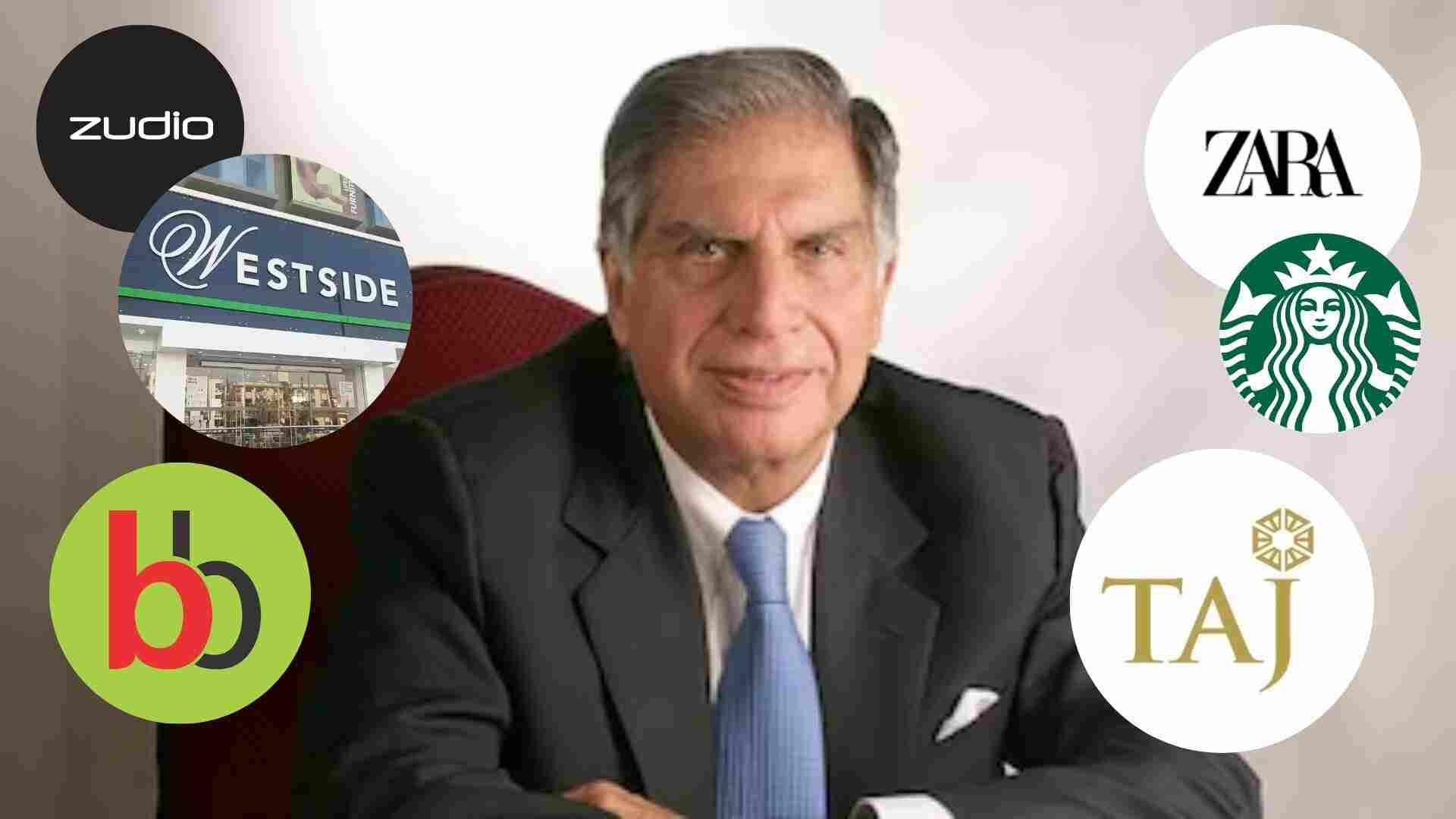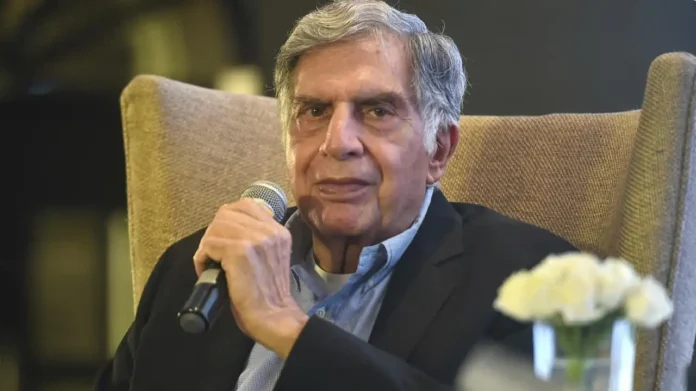Ratan Tata, one of India’s most iconic business leaders, is known for his visionary leadership and transformative decisions that elevated the Tata Group into a global conglomerate. As Chairman of Tata Sons from 1991 to 2012, and briefly in 2016, Tata made a series of bold and strategic business moves that not only expanded the group’s footprint globally but also reshaped the Indian business landscape. His business acumen, humility, and commitment to ethical practices have made him a revered figure in the corporate world.
Let’s explore some of Ratan Tata’s most impactful business decisions that left a lasting legacy on the Tata Group.

1. The Acquisition of Jaguar Land Rover (JLR)
One of the most notable decisions of Ratan Tata’s tenure was the acquisition of Jaguar Land Rover (JLR) in 2008. Tata Motors acquired the two iconic British brands from Ford for $2.3 billion, marking a major milestone in the history of Indian corporate acquisitions.
At the time, many questioned the wisdom of the deal, considering that JLR was struggling financially. However, Ratan Tata’s belief in the strength of these brands and his long-term vision paid off. Under Tata’s leadership, JLR not only returned to profitability but also became a crown jewel in Tata Motors’ portfolio, contributing significantly to its revenue and global standing. This acquisition is often hailed as one of the smartest business decisions in Indian corporate history.
2. Launch of Tata Nano: An Affordable Car for the Masses
Ratan Tata’s vision of providing affordable transportation to millions of Indians led to the creation of the Tata Nano, famously known as the world’s cheapest car. Launched in 2009, the Tata Nano was priced at ₹1 lakh ($2,000), making it accessible to a large segment of India’s population. Tata envisioned the Nano as a safe, affordable alternative to two-wheelers, which many Indian families relied on.
While the Nano didn’t achieve the commercial success that was anticipated, it demonstrated Tata’s willingness to take risks and think outside the box. It was a pioneering effort in frugal engineering and innovation, and it showcased Ratan Tata’s commitment to serving the Indian middle class. The Nano project, though it faced challenges, remains a testament to Tata’s forward-thinking approach.
3. International Expansion of Tata Group
Ratan Tata was instrumental in taking the Tata Group global. Under his leadership, the group’s revenues from international operations grew significantly. Major acquisitions like Tetley Tea in 2000, Corus Steel in 2007, and the aforementioned Jaguar Land Rover deal showcased Tata’s ambition to expand the group’s presence in key international markets.
In 2000, Tata Tea (now Tata Consumer Products) acquired Tetley Tea for $450 million, marking Tata Group’s first major international acquisition. This move not only helped Tata Tea gain a foothold in the global beverage market but also laid the foundation for future cross-border deals.
In 2007, Tata Steel acquired Corus (now known as Tata Steel Europe), a British-Dutch steelmaker, for $12.9 billion, making Tata Steel the fifth-largest steel producer in the world. Though the deal came at a high cost, it helped Tata Steel expand its global presence and diversify its operations.
4. Nurturing the Tata Values of Integrity and Ethics
Ratan Tata is not only known for his sharp business acumen but also for his unwavering commitment to ethics and integrity. Throughout his leadership, Tata maintained a strong emphasis on ethical business practices, corporate social responsibility, and giving back to society. He famously turned down lucrative deals that did not align with the group’s values.
One of the most famous instances of Tata’s ethical stance was his decision to exit the soft drinks business after learning about the unethical practices in the sector. Tata considered his group’s reputation and values above all else, setting a benchmark for corporate governance and ethical behavior in Indian business.
This commitment to ethical practices has helped the Tata Group maintain its reputation as a trusted conglomerate, not just in India but globally. Under Tata’s leadership, the group became known for its focus on sustainability, community welfare, and fair business practices, earning it respect both in the business world and among consumers.
5. Restructuring and Modernizing Tata Group
When Ratan Tata took over as Chairman of Tata Sons in 1991, the group was a sprawling conglomerate with numerous companies operating in diverse sectors. One of his first major tasks was to streamline the group’s operations and modernize its structure.
He introduced corporate governance reforms, centralized decision-making, and encouraged collaboration among different Tata companies. Tata also worked to ensure that all companies under the Tata umbrella adhered to the same core values and ethical standards. His efforts to modernize and restructure the group resulted in greater efficiency, better resource allocation, and a more cohesive corporate strategy.
6. Developing Tata Consultancy Services (TCS) into a Global IT Leader
Under Ratan Tata’s leadership, Tata Consultancy Services (TCS), which was founded in 1968, became one of the world’s largest IT services companies. Tata recognized the growing importance of the IT sector and invested heavily in expanding TCS’s capabilities and global presence.
Today, TCS is the largest revenue generator for the Tata Group and has consistently been ranked among the top IT companies globally. Tata’s early focus on technology and services has paid off, as TCS has become a global leader in the IT industry, contributing significantly to India’s emergence as an IT hub.
7. Navigating Through Economic Challenges and Crises
During his tenure, Ratan Tata faced numerous global and domestic economic challenges, including the 2008 global financial crisis. Tata’s calm and composed leadership during these turbulent times helped the group navigate the challenges without compromising its values or laying off employees.
His focus on long-term growth, innovation, and diversification allowed the Tata Group to weather various economic storms. Even during challenging periods, Tata emphasized the importance of investing in research and development, building the group’s intellectual capital, and ensuring that the company was future-ready.
Conclusion: Ratan Tata’s Legacy of Bold Leadership and Visionary Decisions
Ratan Tata’s key business decisions not only transformed the Tata Group but also set new benchmarks for Indian corporate leadership. From global acquisitions to pioneering projects like the Tata Nano, Tata’s decisions were always driven by a desire to innovate, expand, and uphold the group’s commitment to ethical practices.
His legacy goes beyond financial success—he built a corporate empire that is as much about values as it is about profitability. Even after his retirement, Ratan Tata’s influence continues to shape the future of the Tata Group, as his decisions remain foundational to its operations and global strategy.

